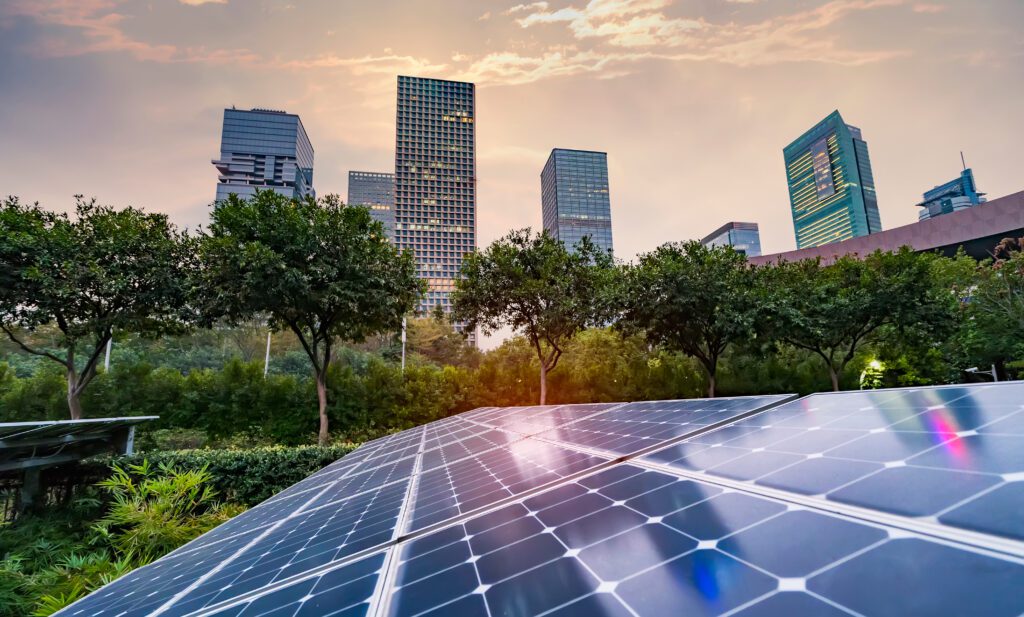By improving the efficiency of energy systems, equipment and buildings to achieve maximum energy productivity, energy efficiency helps to promote sustainable development and presents many commercial advantages.
Contact us today for energy efficiency consulting in Australia.
Energy efficiency refers to the practice of using less energy to accomplish the same level of output or service.
It focuses on optimising energy consumption by employing technologies, processes, and behaviours that minimise energy waste.
By employing these strategies, energy consultancies can effectively guide organisations towards improved energy efficiency, enabling them to reduce energy costs, minimise environmental impact, and contribute to a more sustainable future.

How can engineering consultants improve energy efficiency?
Arche’s Energy consultancies can conduct comprehensive energy audits and assessments to identify areas of energy inefficiency.
Based on the findings from audits and assessments, Arche Energy can develop customised recommendations for enhancing energy efficiency.
Arche Energy can evaluate and recommend energy-efficient technologies and solutions appropriate for an organisation’s specific needs.
Arche Energy can help organisations monitor and measure their energy performance through the implementation of energy monitoring systems.
Arche Energy will stay updated on energy-related policies, regulations, and incentives. They can provide guidance on compliance requirements and help organisations leverage available incentives or grants to support energy efficiency projects.
Arche Energy can develop and deliver training programs to raise awareness among employees and stakeholders about the importance of energy efficiency.
Energy consultancies can assist organisations in developing long-term sustainable energy plans and strategies.
Arche Energy can provide ongoing support by monitoring energy performance, analysing data, and providing feedback for further optimisation.
Energy efficiency helps to conserve valuable natural resources by reducing the amount of energy required to perform various tasks.
By maximising the output from the energy we consume, we minimise waste and the need for additional energy generation.
Energy efficiency also offers economic benefits, including cost savings for individuals, businesses and governments.
By using energy more efficiently organisations can improve competitiveness and stimulate economic growth.
Key benefits of energy efficiency:
By prioritising energy efficiency, we can foster a sustainable and resilient energy system that benefits both the environment and the economy.
Improving insulation in buildings can enhance energy efficiency by reducing heating and cooling needs.
Implementing smart building technologies, such as energy management systems, occupancy sensors and smart thermostats, enables better control and optimisation of energy usage in real-time.
Installing energy monitoring systems allows organisations to track energy consumption patterns, identify inefficiencies and make data based decisions to optimise energy usage.
Organisations can explore renewable energy options, such as solar panels or wind turbines, to generate clean energy on-site.
Alternatively, they can purchase renewable energy from external sources or participate in renewable energy programs.
Establishing energy efficiency policies and setting measurable targets creates a framework for ongoing improvement.
Monitor progress regularly and adjust strategies as needed to achieve energy efficiency goals.

Achieving net zero emissions involves balancing the amount of greenhouse gas emissions produced with the amount removed from the atmosphere.
This is typically achieved by reducing emissions through energy efficiency measures and transitioning to low-carbon or carbon-neutral energy sources, such as renewable energy.
Any remaining emissions can be offset through carbon removal or sequestration techniques.
Energy efficiency is a critical component of the path to net zero emissions.
By improving energy efficiency across sectors, we can significantly reduce energy demand and associated emissions.
Industrial processes can be optimised, and energy-intensive equipment can be upgraded to more efficient alternatives.
The agricultural sector can adopt sustainable practices that reduce energy consumption and emissions.
Energy-efficient buildings, for example, can be designed with:
In the transport sector, energy efficiency can be achieved through:
Energy efficiency measures help reduce energy demand and emissions, making the transition to net zero emissions more achievable and cost-effective.
Collaboration among stakeholders, including governments, businesses, and communities is also crucial to drive innovation, share best practices, and foster knowledge-sharing
By improving energy efficiency and transitioning to low-carbon energy sources, we can reduce greenhouse gas emissions, conserve resources, and build a more sustainable and resilient energy system.
Embracing energy efficiency measures is a crucial step towards achieving the goal of net zero emissions, enabling us to mitigate climate change and create a better future for generations to come.